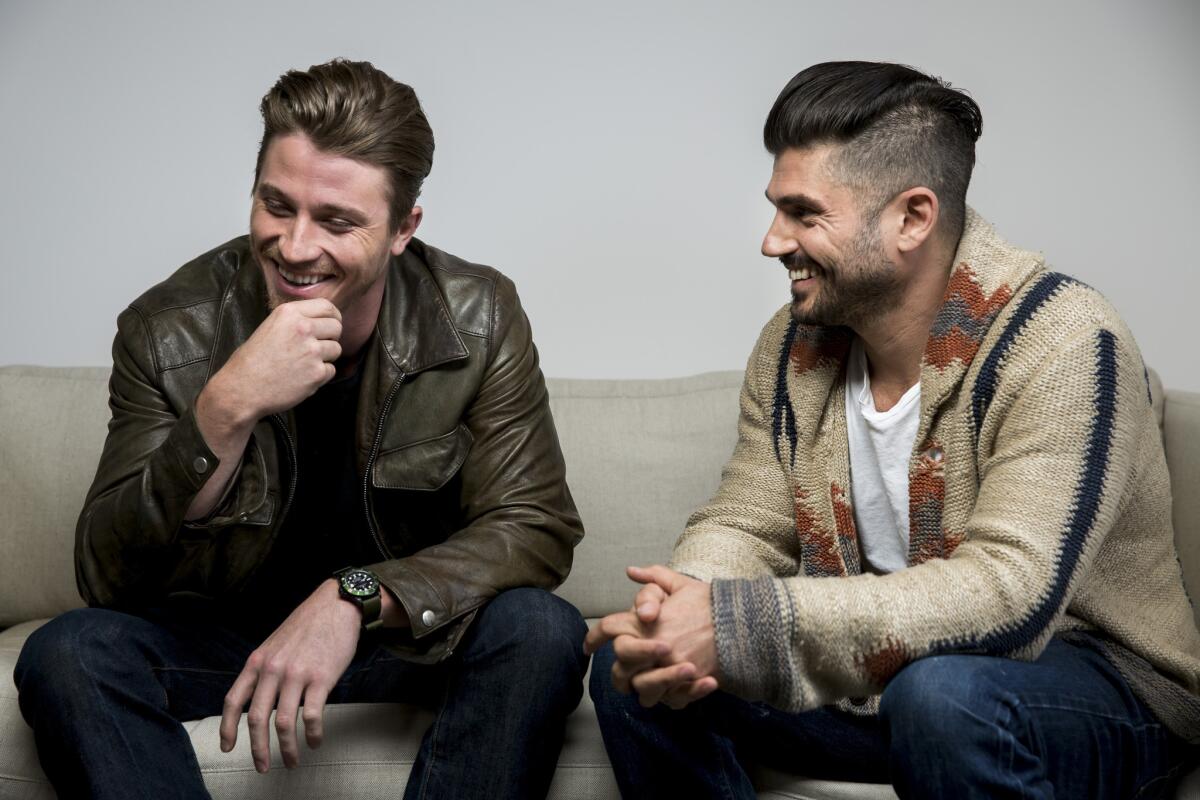Andrew Levitas’ ‘Lullaby’ a movie tribute to father’s life and death

New York artist Andrew Levitas was a teenager when his father was diagnosed with cancer. And for the next decade, Levitas watched as his father fought the disease.
“He was an incredibly courageous guy,” said Levitas, 37. “We learned so much about being a strong and compassionate person and to put others first and accept your lot in life.”
But there came a point where his father knew he would never be free of the disease. He was in pain and worn out. He decided, Levitas said, “enough is enough.” He gathered his family to tell them he was pulling the plug on the machines and medications that were keeping him alive.
“I think in an incredibly beautiful and scary way, he gave up his own death for us,” Levitas said. “He may have chosen to have gone peacefully off and have people cry over him. But he used it as an opportunity to push buttons and for us to reconnect to each other. Rather than making it about him, he made it about us.”
His father’s decision to end his life was the inspiration for Levitas’ feature directorial debut, “Lullaby,” which opens June 13 and is available on VOD and iTunes.
Garrett Hedlund (“Tron: Legacy,” “Inside Llewyn Davis”) plays Jonathan, an unsuccessful musician estranged from his family. He arrives home after a long absence to learn that his father, Robert (Richard Jenkins), has decided to take himself off a life support system.
Although his mother (Anne Archer) seems to have accepted her husband’s choice, Jonathan is filled with rage, and his attorney sister (Jessica Brown Findlay) is so upset she goes to court to stop her father.
During the course of 48 hours, Robert says goodbye to his friends and brings his family together. Along the way, Jonathan befriends a young girl (Jessica Barden) in the hospital who is dying of cancer and rekindles his relationship with his former girlfriend (Amy Adams).
“The core of the movie is about freedom and who owns your life,” Levitas said with Hedlund, who just completed the Angelina Jolie-directed “Unbroken” and was heading off to England to play a young Hook in “Pan.”
“I wanted to make a movie about the right to die,” Levitas said. “In our society, we don’t view death as part of life. We won’t talk about it.”
Though Hedlund never had an experience such as Levitas’, he got emotional remembering his last phone call to his grandfather, who was in a coma at a hospital four years ago.
“We were very close,” Hedlund said quietly. “I had just started playing the guitar. He was a big fan of Waylon Jennings and my sister’s name is Amanda, so I played ‘Amanda’ over the phone. That’s when he let go. I was the one who called my mom and said something’s happened to Grandpa. She later called and said, ‘Grandpa is gone.’”
Hedlund initially felt “unbearably responsible” for his grandfather’s death, believing if he hadn’t called him, he may not have died.
Levitas’ script, said Hedlund, “moved me so much, especially some of the last words I have with Richard Jenkins’ character. It really choked me up.”
Especially since his own father has had several health issues including pneumonia, a stroke and a heart attack.
“I have stood next him in the hospital,” Hedlund said. “His name happens to be Robert, which is the father’s name in this. When it came time to do the scenes with Richard where I’m sitting next to him in the bed, Andrew just let the camera keep rolling and we would end up with 10- to 12-minute improvised scenes.”
The story was so personal to Levitas, Jenkins said by phone. “I think it’s an issue a lot of people go through and deal with.”
And Robert was the type of role that the Oscar nominee (“The Visitor”) couldn’t turn down.
“I have to say I loved the part,” said Jenkins, who lost 20 pounds for the role. “I loved the idea of somebody feeling at peace bringing his family together. This guy is determined to square things with his kids.”
Jenkins spent a lot of time with Levitas before production began. The director talked about his dad, took the actor into his house and showed him pictures — all helpful, Jenkins said.
“The film is incredibly uplifting in terms of what the end of life looks like,” Levitas said. “This is a man that goes out in probably the best way possible with his family around him, laughing and with love in his heart.”
More to Read
Only good movies
Get the Indie Focus newsletter, Mark Olsen's weekly guide to the world of cinema.
You may occasionally receive promotional content from the Los Angeles Times.







